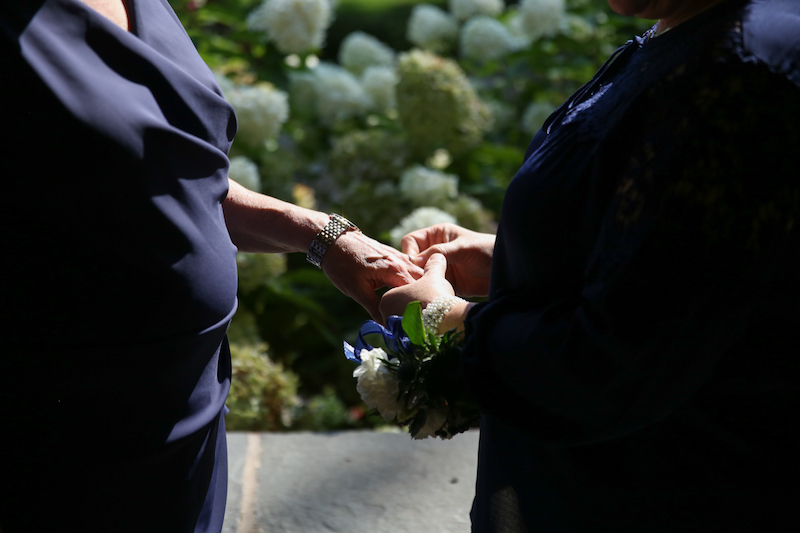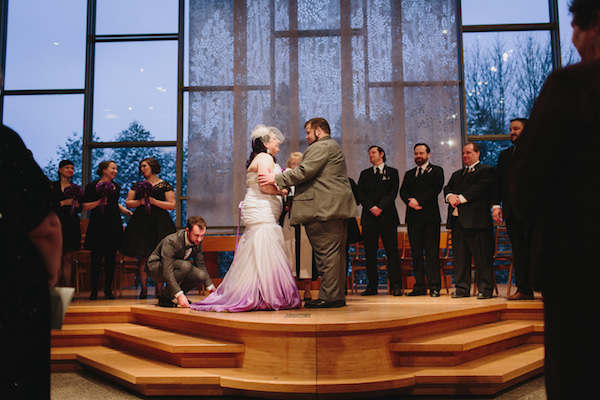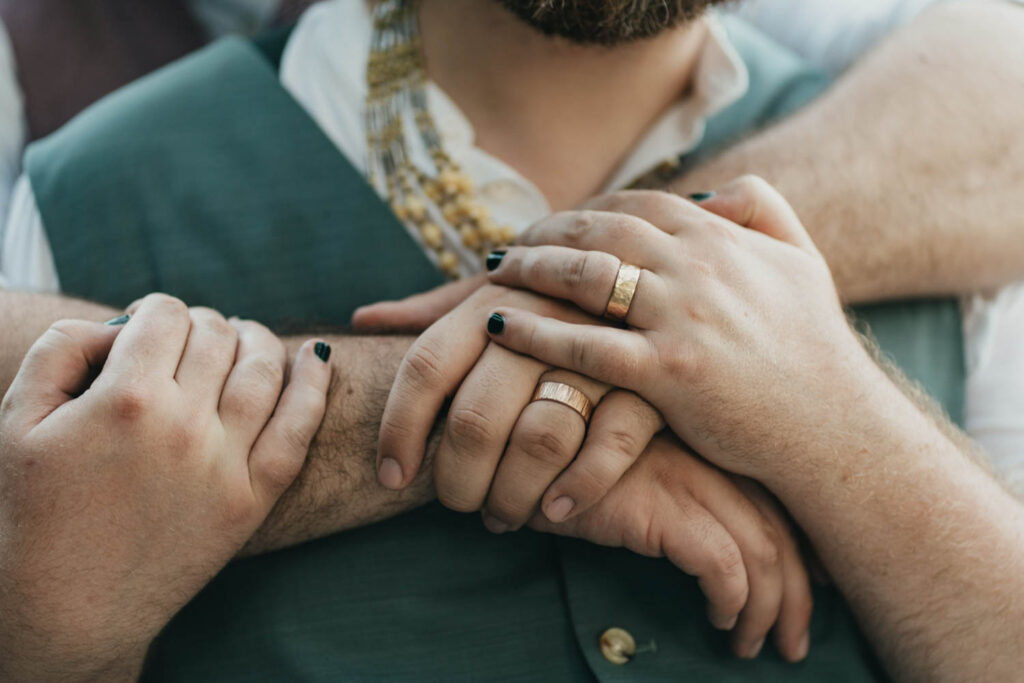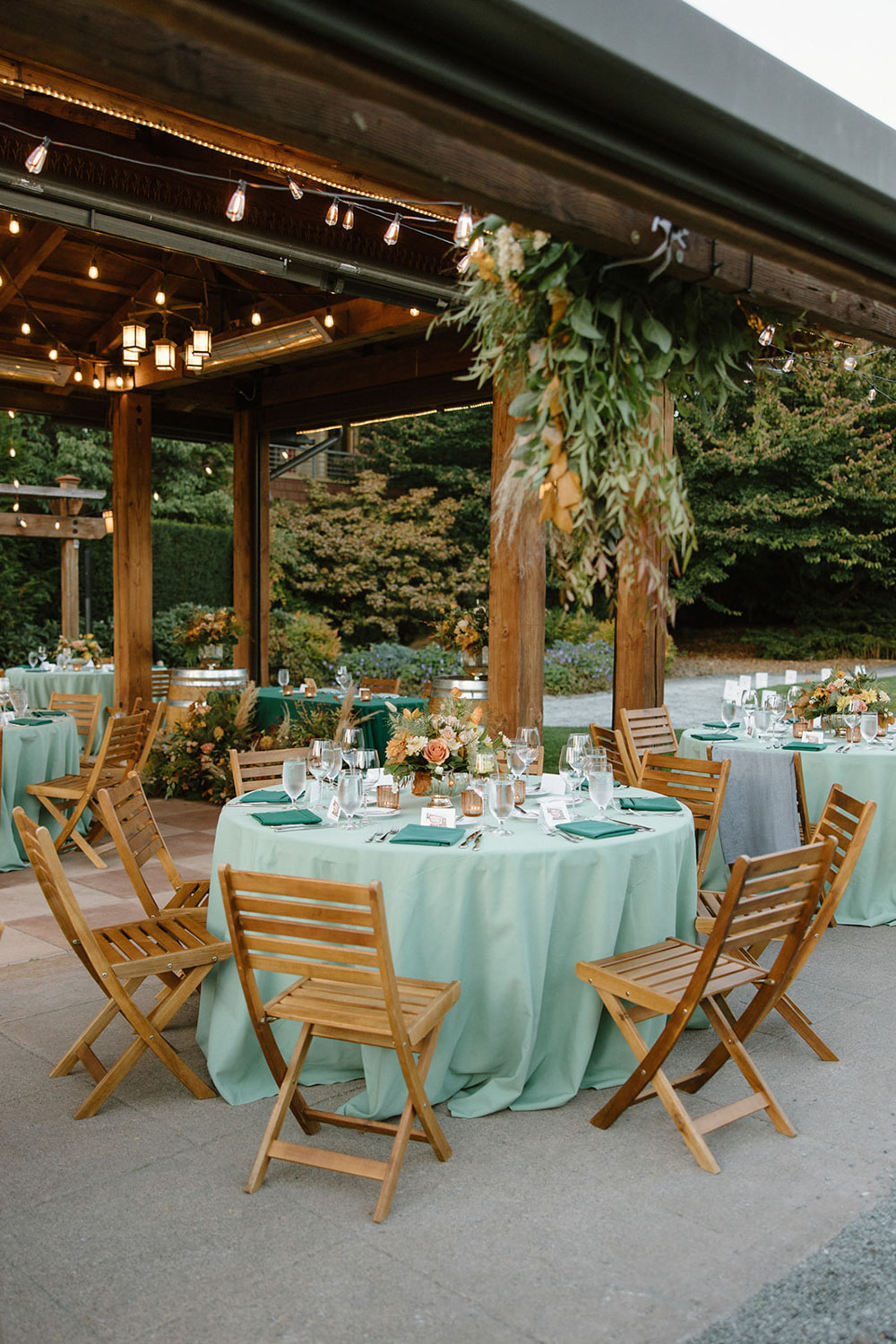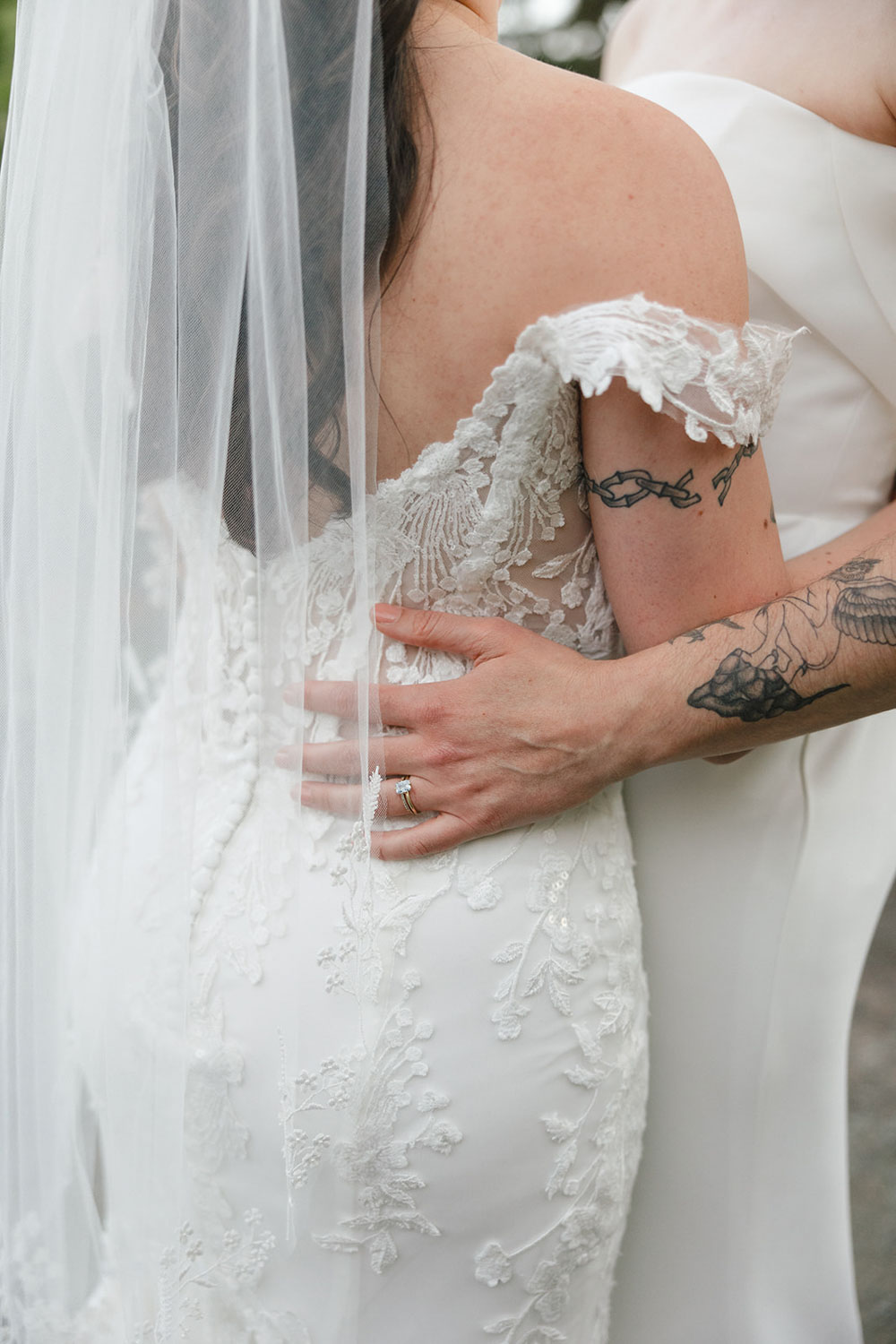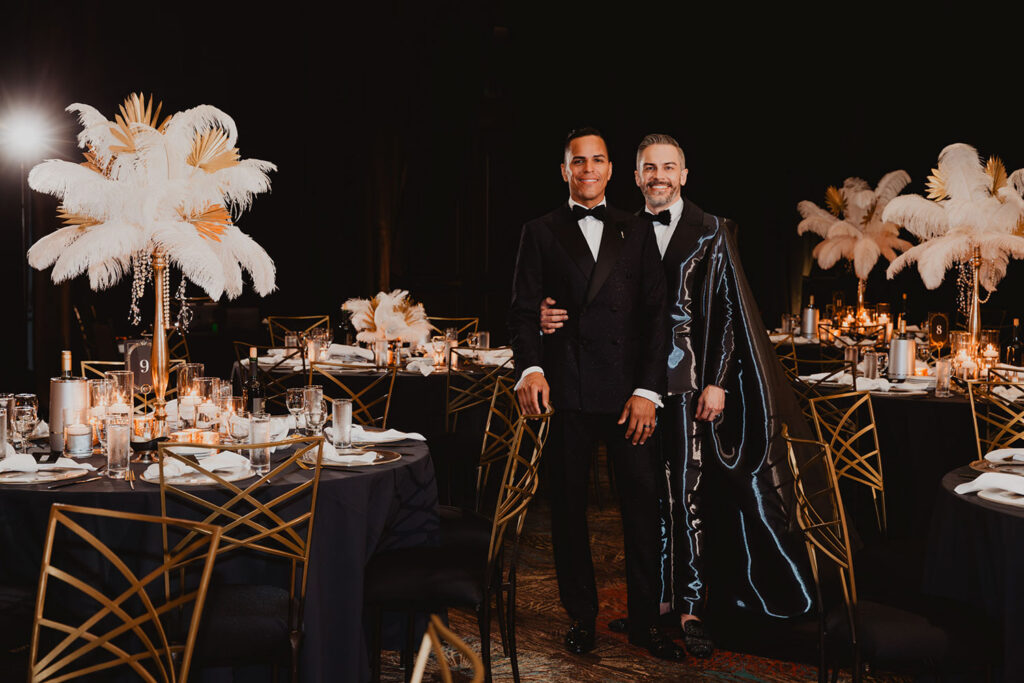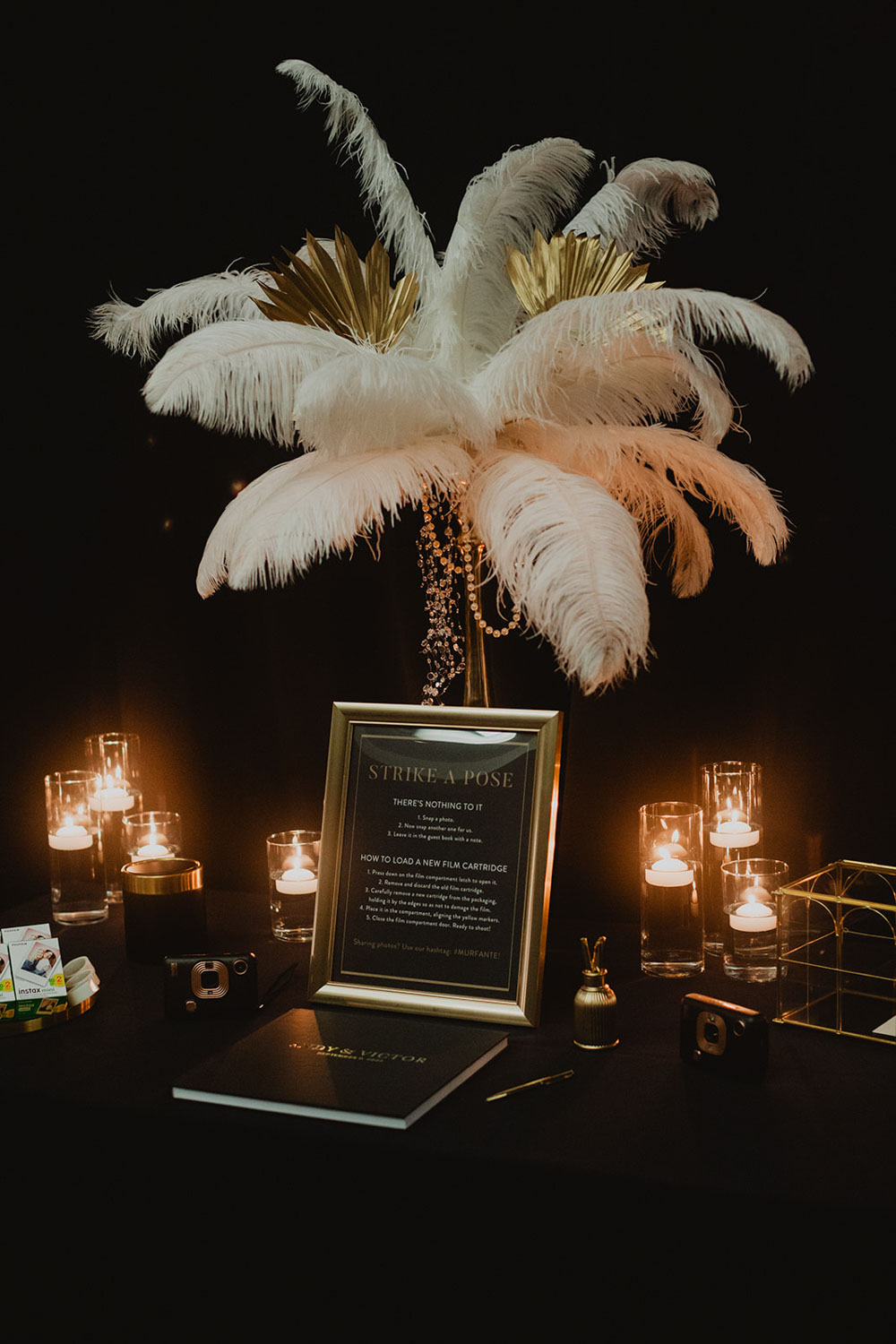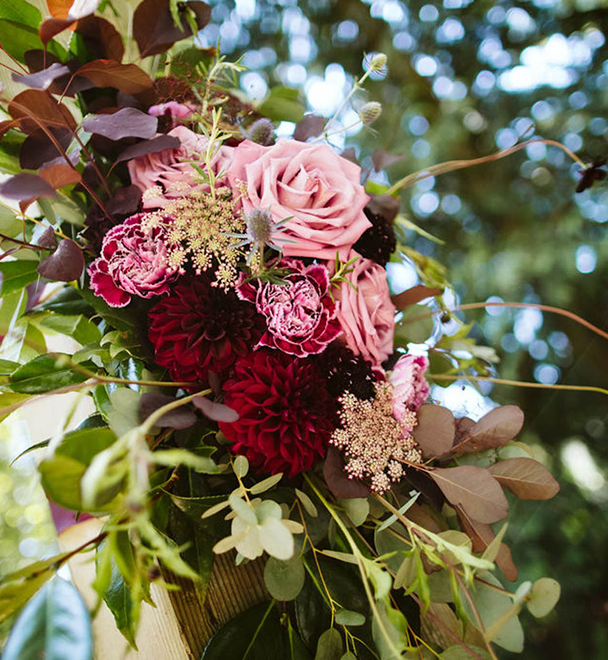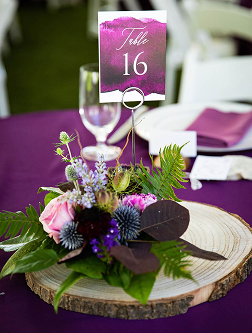There’s been no shortage of articles and blog posts and even academic studies in recent years on the topic of emotional labor. I’m sure you’ve seen them around. Perhaps you’ve even perused the condensed MeFi thread of comments.
But have you, a person who is perhaps planning a wedding right this minute, considered how emotional labor relates to weddings? I have given it a lot of thought, and it’s what I’m talking about today.
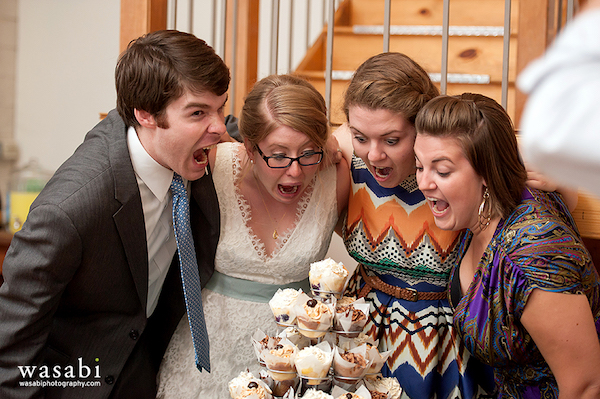
What is Emotional Labor?
Before we dive into it, let’s define what emotional labor even is. The most succinct definition I’ve found comes from this Everyday Feminism article on the topic:
Emotional labor is the exertion of energy for the purpose of addressing people’s feelings, making people comfortable, or living up to social expectations. It’s called “emotional labor” because it ends up using – and often draining – our emotional resources.
For better or for worse (pun intended), the scope of emotional labor has also come to include, at least by popular definition, many life tasks that I would think of as mental labor about labor: noticing when the laundry hamper is full or the toilet paper stash is low; keeping a running list of which chores need to be completed; planning meals and compiling the grocery list; remembering all the family birthdays; being the parent who gets the school emails and the first (and often, only) one who gets called to pick up a sick kid who needs to go home early.
The burden of this meta labor, in almost every place it’s found, falls disproportionately on women. Women are trained from birth to think about the things that need to be done, notice when the house has gotten dusty, and worry about how others will feel (and judge!) if we forget to send a holiday card. And that’s on top of actually doing the chores required to meet these demands. Men may believe they are sharing the load equally when they complete fifty percent of the tasks, but in most cases, they’re doing close to zero percent of the planning, observing, and keeping track required to manage the project of successful adulting.
Weddings Are No Exception to the Gendered Division of Emotional and Meta Labor
It should come as no surprise that emotional labor is part of every wedding. Weddings are centered around living up to social expectations, managing people’s feelings, and making people comfortable. I’m sure you’ve already reached the not-at-all-shocking conclusion that women are doing the majority of the emotional labor for weddings, just as in everyday work and home life.
Women find the wedding planning checklists, assign tasks to their partners, give them deadlines, and think about the overall vision; leaving men to “do” half of it (if we’re lucky!) but exempting them entirely from the work of thinking about it.
And what’s worse: society heaps enormous pressure on women to do it. It doesn’t even need to be said aloud that this job is entirely hers; we all understand it implicitly. It’s blatant in the way we talk about weddings, how we see them in the media, and even in how the wedding industry positions itself.
It’s the best day of her life! (And a trap for him.)
It must be perfect! (And it is her job to make it so.)
It has to have the right wedding traditions! (Which are all so emotionally loaded.)
It’s HER day! (He doesn’t get one, I guess?)
She’s been dreaming of it her whole life! (Oh, but what if she hasn’t? And what if he has?)
We raise girls to start planning their weddings from the time they are old enough to act one out with a Barbie doll in a princess gown; we don’t raise boys to think about their weddings at all. We train women to be concerned with proper wedding etiquette and wedding colors and getting a ring on it ASAP from their first starry-eyed teenaged date. We train everyone else – other women, mostly – to interrogate only brides about such details, and to do it at every possible opportunity.1
Meanwhile, grooms bear no responsibility to plan or know anything about the details of their own weddings; other men aren’t expected to ask or care about them, either.
The Marriage Proposal: Where Men’s Wedding Work Ends and Women’s Work Begins
Think about your experience as a newly-engaged person. If you’re a man or present as male, you probably got a congratulatory slap on the back for picking a ring (likely with the help of her closest female friend) and pulling off the proposal without a hitch.2
Congratulations, male human! Your wedding-related duties are now complete. Please sit back and relax until it’s time to toss a few
But if you’re a woman or femme-presenting person, after some sort of exclamation about the size of your new diamond,4 you have probably been on the receiving end of a barrage of questions, virtually all of which come from other women, about every possible detail of your wedding.
Do you have a date yet? What are your colors? How many bridesmaids are you having? What’s your theme?
And on and on. It’s as though, once engaged, women cease to have anything meaningful in their lives besides being engaged.
As Usual, Women Are in Charge of Everyone’s Feelings and Men Get to Just Show Up
At every stage of wedding planning, we see this play out.
It’s women who have to know the answers to all the intrusive questions about their plans – because nobody’s asking men.
It’s women who download the “How to Start Planning a Wedding” checklists and prioritize the tasks and maybe, possibly, assign a small amount of “easy” jobs to their future husbands – because men are taught to think of weddings as just some food and some music that will be a breeze to pull together. The hard wedding decisions we expect of men are usually limited to choosing between the chicken or the fish (after the bride has first narrowed down the caterers, selected one, and scheduled the tasting) or making the final selection of a first dance song (from the choices she has culled based on favorite moments she’s been tracking in their relationship for years, filtered through 17 “Best First Dance” song lists she read on the wedding message boards.)
It’s women who are expected to have an eye for design and keep up with the latest trends on Pinterest and Instagram and figure out how to make something beautiful enough to meet the “perfect day” expectations.
It’s women who are cautiously navigating their parents’ – and the grooms’ parents’ – feelings about what food to serve, who to invite, and whether peonies, place cards, and a church ceremony really are necessary for it to be a “real” wedding.
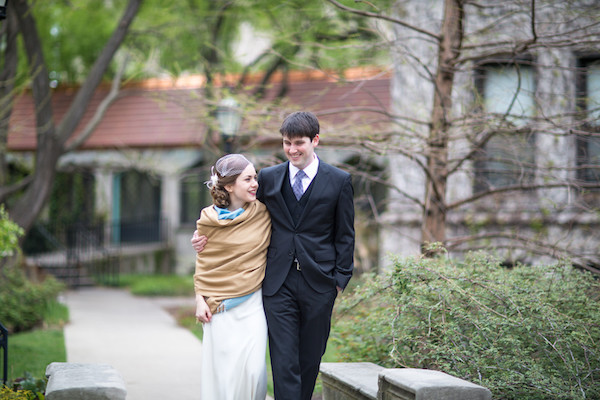
The Wedding Industry is Part of the Problem
It’s not just the well-meaning moms and aunties and friends or the dads who know they are “just here to write the checks” – the wedding industry upholds this gendered labor gap, too. Just poke around on any major wedding blog or a handful of wedding vendors’ websites. With the exception of the small percentage of us who are pro-marriage-equality feminists, everywhere you look it’s “bride” this and “bridal” that with nary a “groom” in sight.5
“It’s the bride’s day,” we say, and she should have a 5″ binder full of plans that she’s been working on since she was seven years old. Never mind whether the groom has any opinions. She is constantly asked about her vision for her day – and, in many cases, told that her vision is wrong and it must be done a certain
In other words, every bride is given an impossible assignment and deemed a failure when she inevitably cannot complete it.
Couples who inquire with vendors are met with replies that address only the bride, even if it was the groom who reached out. Hell, I’ve had couples tell me that a big reason they hired me was that I made eye contact with both of them and assumed that they’d both be equally involved in the planning! (Yes, I can treat you two as (gasp!) equals while I plan your wedding – details here!)
Emotional Labor is Why Wedding Planning is so Stressful for Women
All of these expectations add up to the same kind of stress women face in the rest of their lives – how to balance their own emotional needs with those of everyone around them and still put on a happy face. (Because it’s the best day of your life and you better look like you’re enjoying it!)
It’s another second shift, but it’s actually a third shift because there’s still that whole domestic project management thing happening every night. Engaged women spend, on average, 10-15 hours per week for 12 to 18 months planning their weddings. That’s over 500 hours at the low end and more than 1000 hours at the max, and so much of that time is spent managing the mental load and other people’s feelings.
That’s the equivalent of 13 to 26 UNPAID work weeks to plan a single day.No wonder wedding planning is one of the most stressful and exhausting times in a woman’s life.
So How Do We Make Wedding Planning Egalitarian?
Everyone involved in creating this problem has to be part of the solution, and that means women need to step down, men have to step up, the wedding industry has to stop it with the sexist bullshit, and we’ve all got to embrace outsourcing the work as a success, not a failure.
(Quick note for LGBTQ+ folks, because this does affect us, too: Take a minute to figure out which one of you does the majority of the emotional labor in your relationship. Chances are, it’s the person who schedules your social engagements, researches your vacations, remembers all your relationship milestones, sends out the holiday cards – and who read this article first.)
1. Women Have to Step Down
If you’re a woman and/or the person who does most of the emotional labor in other facets of your relationship, share this article with your future spouse and take a fucking break. You deserve it. Don’t do any more wedding planning until you’ve split up the wedding planning checklist fairly. And remember that fairly does not necessarily mean equal number of tasks; it means an equal workload. Sorting out all of the details required to find, book, and manage a caterer is a much more difficult thing to do than hiring a DJ; don’t treat them as two items of equal value to check off your list.
2. Men Need to Step Up
If you’re a man and/or the person who usually does domestic and relationship maintenance chores because your partner asks you to, stop right now and go find two or three wedding planning checklists, or shell out a few bucks for mine. (It’s a great checklist. It’s not free because I insist on being paid for my labor.) Read through them, start to finish. Pick at least 50% of the items on them and take full responsibility – for figuring out what they mean, what research needs to be done, how much they will cost, what choices will have to be made, etc. Ask your future spouse if the division you’ve come up with feels equitable. And then get that shit done!
3. The Wedding Industry Has to Stop the Sexist Double Standard
My colleagues – it’s on us to change the culture from within. I can’t say this emphatically or often enough: Cut it out with this bride-centric bullshit. There is no such thing as a wedding where only one bride is involved. Every wedding takes two people. Speak to them both. Involve them both. Assume both of them will be taking equal responsibility for the plans and that both are equally emotionally invested in the outcome. And look at both people when you are speaking to them about their wedding, for fuck’s sake.
4. Let’s Embrace Outsourcing
As with mothering, housekeeping, and all sorts of other “maternal” and “womanly” tasks: women are under a lot of pressure not just to have it all – but to do it all themselves. Y’all – we don’t need this. Hire a housekeeper, order takeout, drop your laundry off for wash-and-fold service. We have modern solutions for the labor burden and we’ve got to stop looking down on women who choose to pay other people to do work they don’t want ot don’t have the time or energy to do themselves.
The same goes for weddings! Nobody questions the decision to hire photographers, florists, caterers, and DJs, but for some reason, we’ve decided that a woman is not living up to her full bridal potential if she doesn’t do every single bit of logistics and aesthetic planning herself, lovingly hand-crafting table décor for hours every weekend, laboring over “blush” versus “bashful” linens, and color-coding plans for showers and welcome receptions and post-wedding brunches and actual wedding days.
My friends, there are people whose entire job is to think about these things so that you don’t have to! And we have the experience to get it done efficiently, prevent the problems you don’t know to watch out for, and make the whole damn thing a lot less stressful and time-consuming for you.
You do not have to become an expert in wedding planning in order to get married. You do not have to give up all of your free time for the next year and a half on a quest for a perfect day. You do not have to do it all yourself.
You can outsource this. (Here’s where to hire me.)
And then you can sit on your couch in a clean house, enjoying your lo mein with your partner because you have reclaimed your time to do so.
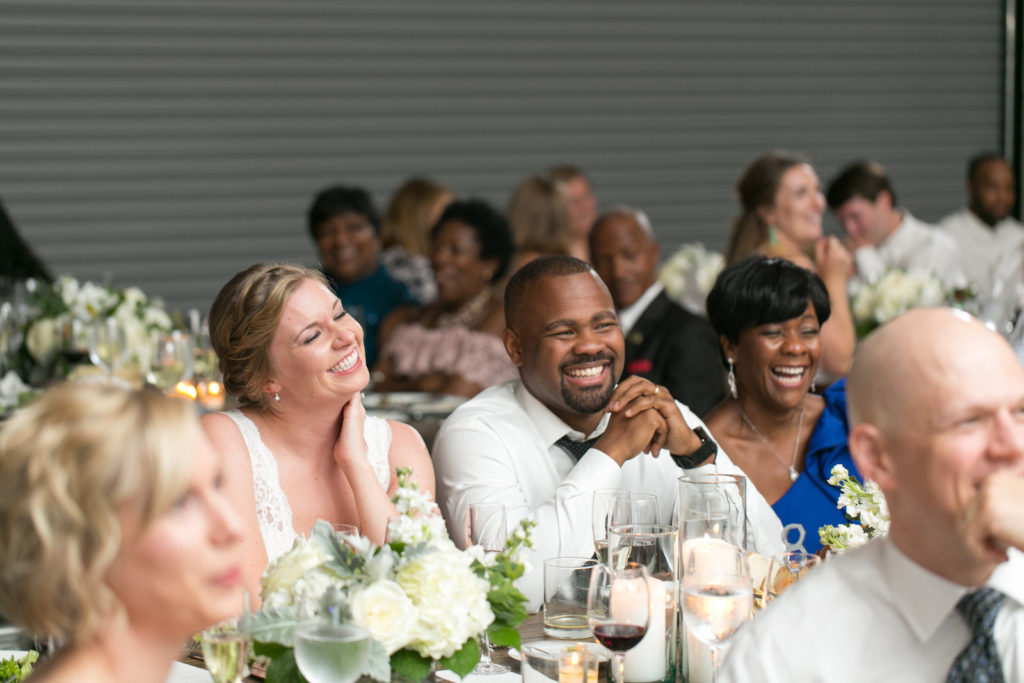
A short list of points raised that warrant their own further investigation:
- Why are weddings deemed the pinnacle of a woman’s life, but just another notch on the achievement bedpost of men’s?
- We’ll leave, for now, the bizarre concept of making a unilateral decision that has lifelong consequences without much discussion in advance. We all know this is leftover from the patriarchal women-as-property-of-men idea. Worth noting that this is a spot where the patriarchy imposes a lot of pressure on men that could really be done without. Feminism helps everyone, ok? Ok.
- The gender disparity in expected duties and time and financial commitments, as well as emotional and mental labor, between sides of the wedding party is also some kind of sexist bullshit.
- This is more of a capitalism problem than a feminism problem, but can we also stop measuring love in money and things?
- Ahh, the bridezilla. Just another way to call a woman who knows what she wants and takes action to get it a bitch.
- Besides how this very obviously excludes straight men, bride-centrism in the wedding industry is totally exclusive of LGBTQ+ folks. Fucking stop it.
